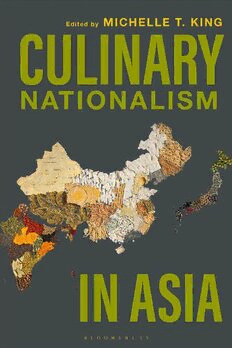
Culinary Nationalism in Asia PDF
305 Pages·2019·14.966 MB·English
Most books are stored in the elastic cloud where traffic is expensive. For this reason, we have a limit on daily download.
Preview Culinary Nationalism in Asia
Description:
This collection of essays comprises a groundbreaking volume, as it is the first to propose a critical, comparative framework for the study of modern foodways both inside and outside of Asia, through the crucial lens of culinary nationalism. With “culinary nationalism” defined as a process in flux, diametrically opposed to the limited concept of national cuisine, the contributors call for explicit critical comparisons of cases of culinary nationalism within regions, in order to recognize regional patterns of modern culinary development. In essence, the formation of modern cuisine is revealed to be a process that takes place around the world, in different forms and periods, and is not exclusive to current Eurocentric models. Instead, the essays set out a fresh agenda for thinking about future food studies scholarship through the comparative consideration of key themes: gender, cooking, and consumption; the cultivation of taste and authority; the reinterpretation of culinary traditions; inter/national cuisines; hunger, violence, nation; and Asia as culinary imaginary.With fourteen original contributions from a range of established food studies scholars, including Katarzyna J. Cwiertka, Eric C. Rath, James Farrer, Jean Duruz, and Daniel E. Bender, and a foreword and afterword from Krishnendu Ray and James L. Watson, respectively, this volume is a vital contribution to the study of food in Asia. The interdisciplinary, and broadly comparative, scope of the chapters ranges across historical and contemporary culinary geographies of East, South and Southeast Asia, drawing from history, sociology, anthropology, geography, economics, literary studies, and film and cultural studies.
See more
The list of books you might like
Most books are stored in the elastic cloud where traffic is expensive. For this reason, we have a limit on daily download.
